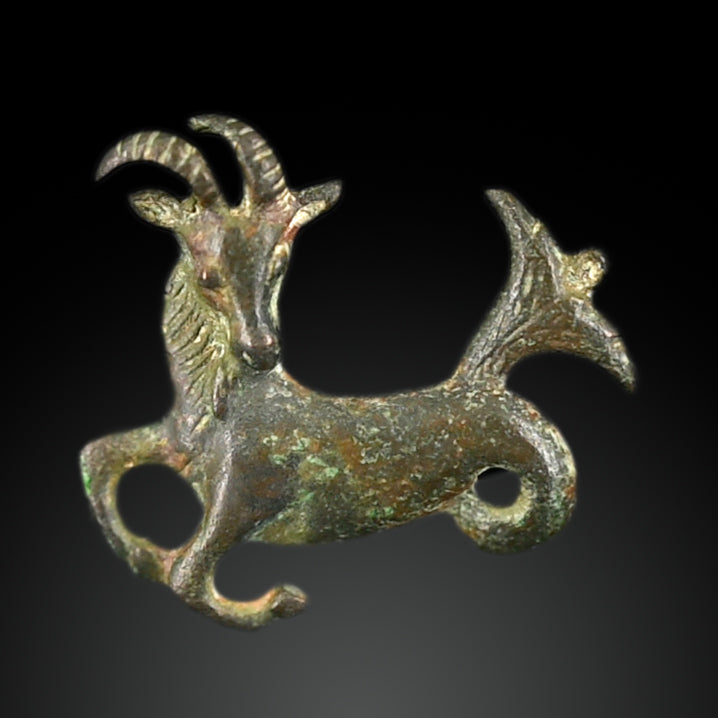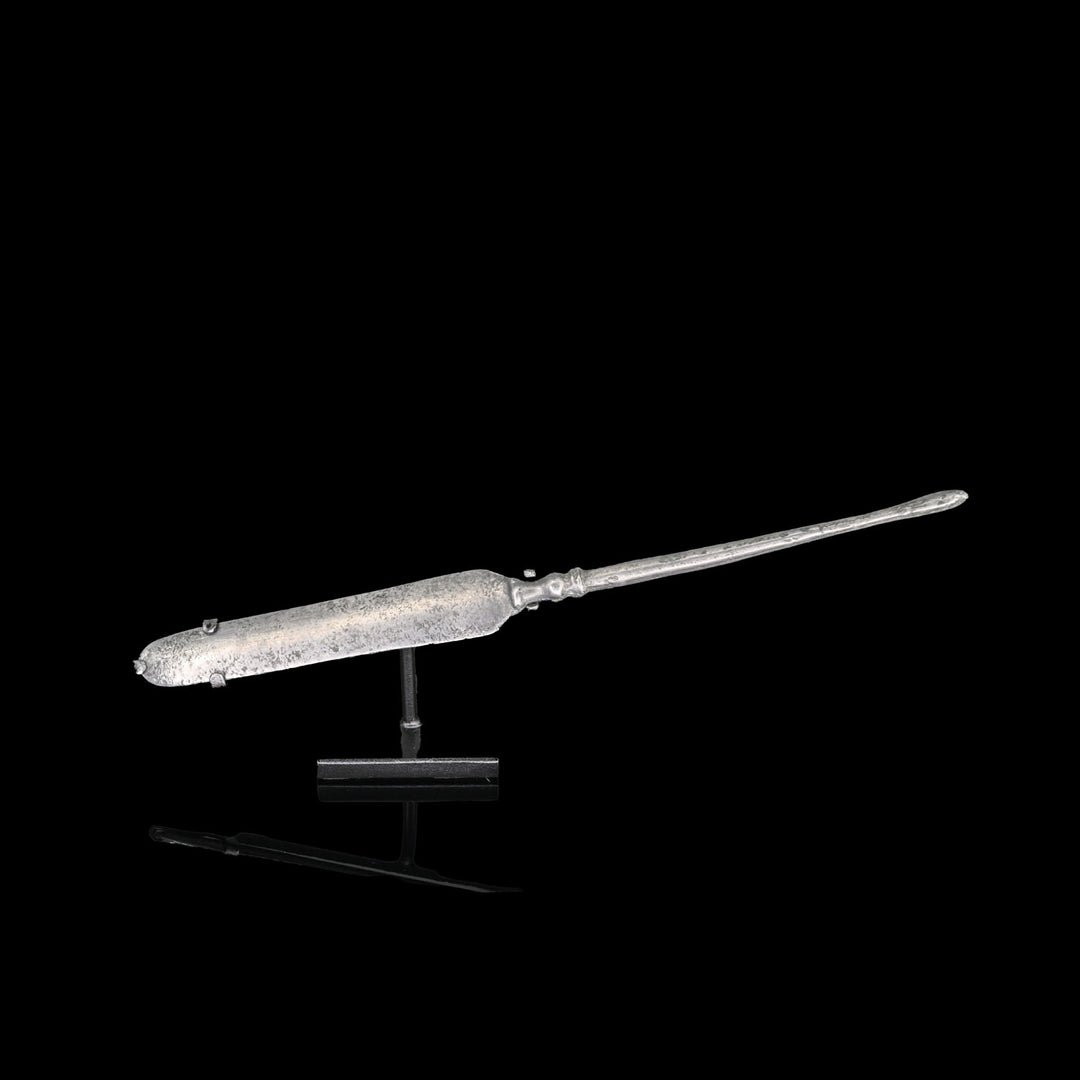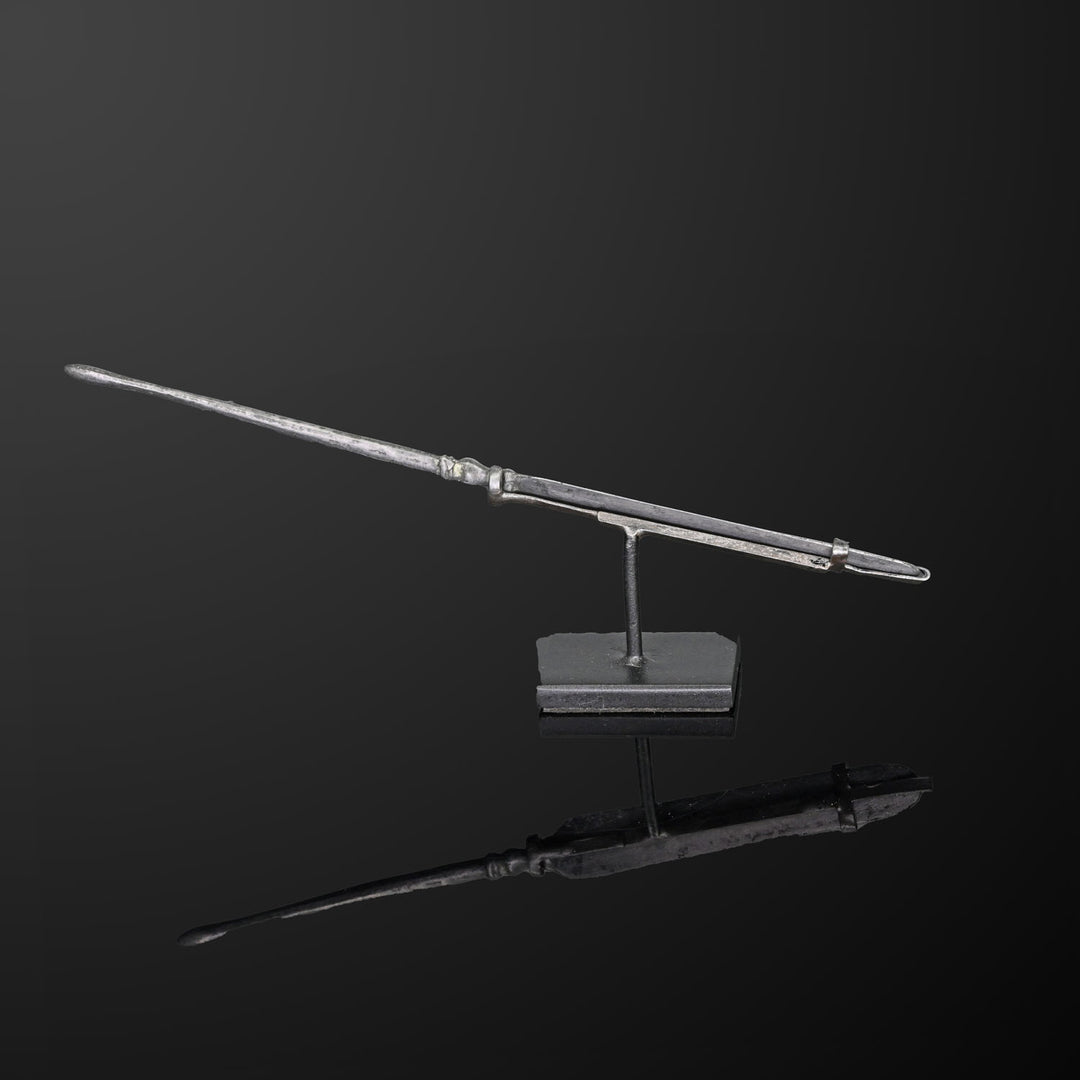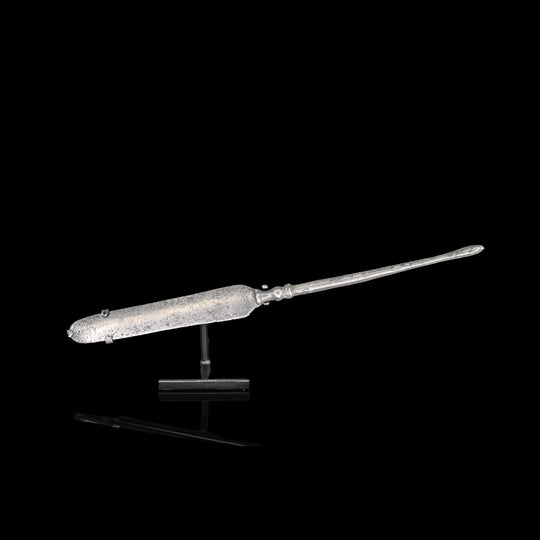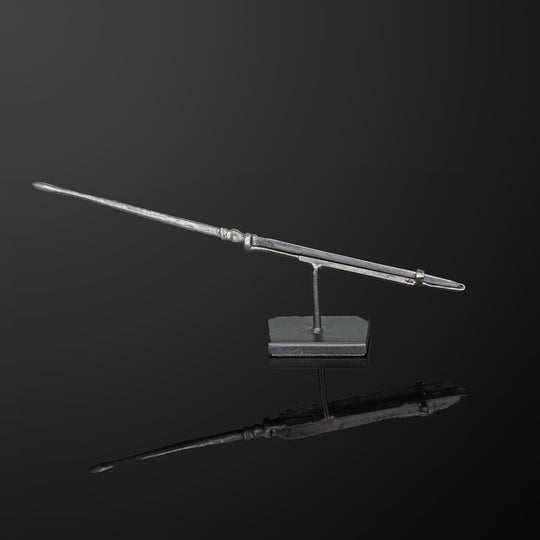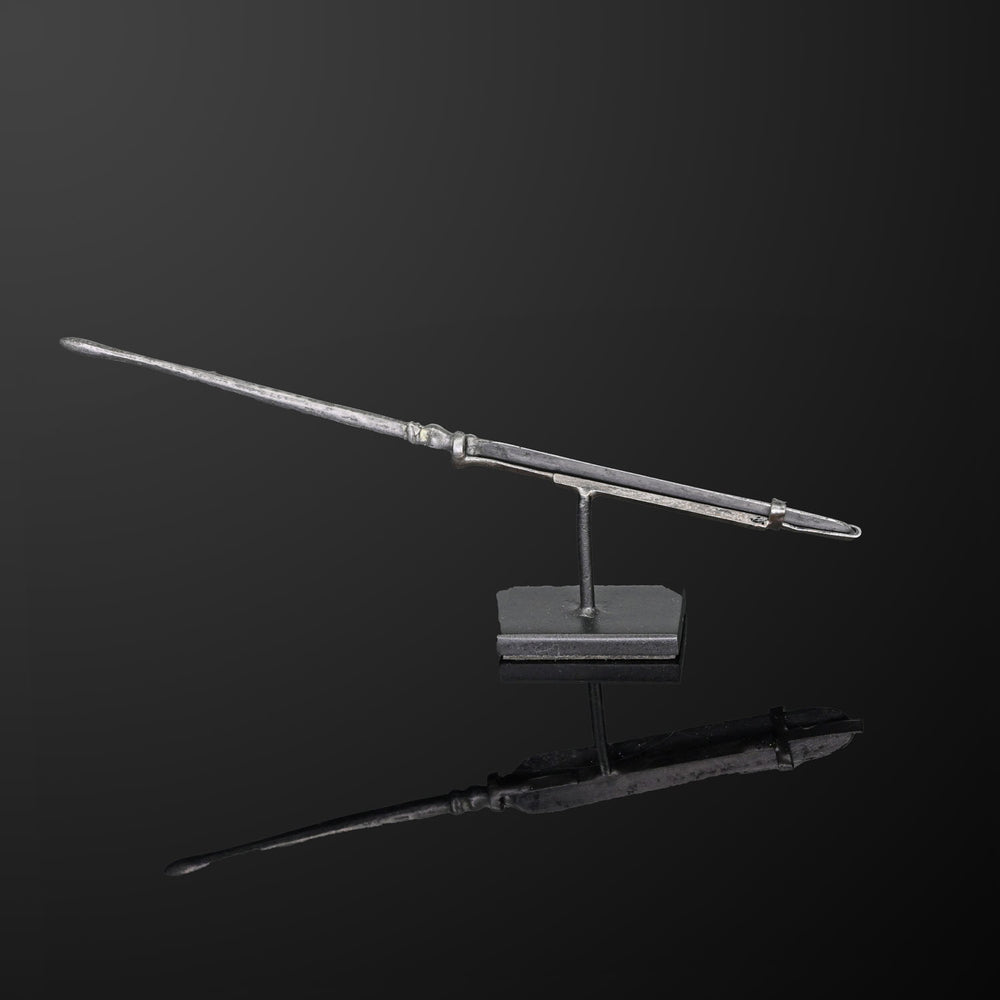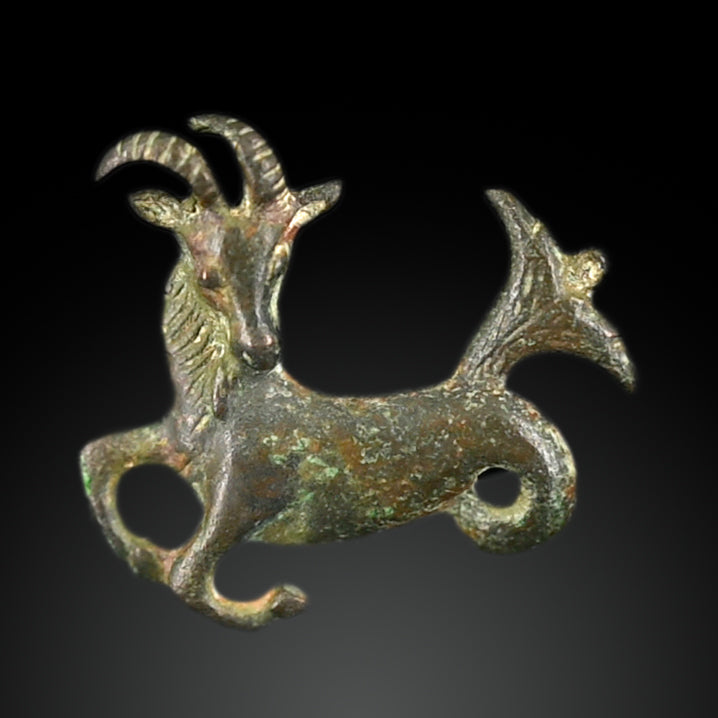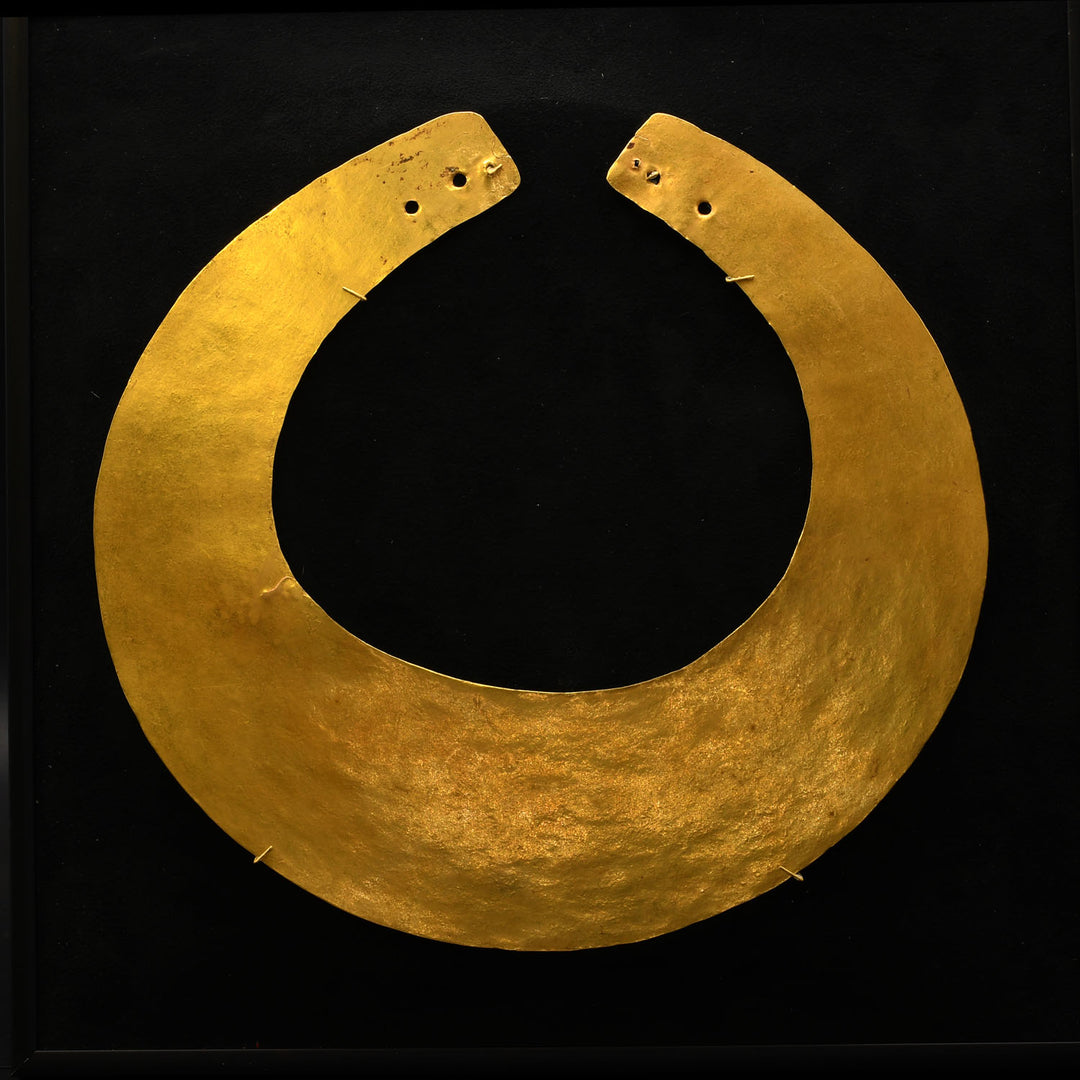A rare Roman Silver Surgical Spathomele, Roman Imperial Period, ca. 1st - 2nd century CE
RM2302
- This object qualifies for free USA shipping and a flat rate fee of $60 if shipping internationally.
A beautifully preserved Roman spathomele, or spatula probe, with a wide flat rectangular tongue on one end with a small, skillfully turned grip above, tapering into a long thin shaft, with an olivary enlargement or puren at the other end. The puren was a highly versatile element. In addition to probing, its applications encompassed grinding, mixing/ stirring, and applying medicaments, where it was sometimes wrapped with a piece of wool that was heated or moistened. Other functions included measuring (or being used as a unit of measure) and even cauterization. The puren was particularly well suited to fine, small-scale burns, such as those eliminating papillary growths characteristic of ophthalmic. The spatula provided a firmer grip and less danger of injury when making deep incisions. It was also used for dissecting tumors and abscesses and for various practical applications during surgical procedures.
The multi-purpose spathomele is frequently found on archaeological sites and abounds in surgical kits taken from graves. They are mostly made of copper alloy, sometimes decorated with silver inlay and, very occasionally, are wholly made of pure silver, such as this example. Both puren and spatula made excellent probes, the latter also serving as a dissector, and either could be heated for cauterization. There is also reference in ancient texts to the shaft being positioned to direct or steady a scalpel, in the treatment of a fistula, for example, and also where the spatula is used as a guard for vulnerable areas needing protection against a scalpel, chisel or drill, particularly during operations on bone.
For related examples cf: John Stewart Milne, Surgical Instruments in Greek and Roman Times (Oxford: Clarenden Press; repr. New York: Augustus M. Kelley, 1970), pg. 60
For further discussion, see: Lawrence J. Bliquez, The Tools of Asclepius: Surgical Instruments in Greek and Roman Times. Studies in ancient medicine, 43. Leiden; Boston: Brill, 2014, pgs 113-114, 118-119.
Medium: Silver
Dimensions: Length: 5 1/2 inches (14 cm)
Condition: Intact and in very good condition overall. Presented on a museum quality custom mount.
Provenance: Private NYC collection, acquired from the NYC trade.
Sands of Time provides a lifetime, unconditional guarantee of authenticity and provenance. Every object you purchase from us is accompanied by a Certificate of Authenticity, stating culture, provenance, and age.
Furthermore, we conduct due diligence to ensure the item, to the best of our knowledge, has not been illegally obtained from an excavation, architectural monument, public institution, or private property. Wherever possible, reference is made to existing collections or publications.Wherever possible, reference is made to existing collections or publications.
We ship Tuesday to Friday with FedEx and usually same day if your order is received before 2pm. Within the continental USA, packing, shipping and insurance is free. Depending on size and destination, delivery times range from one to five business days.
For overseas shipments we charge a small flat rate which includes packing, preparation of all customs paperwork, insurance and carrier fees in compliance with all USA and International customs requirements. Overseas shipments are sent using either USPS Priority Mail or FedEx but contact us if you have a shipping preference. International customers are responsible for all duties and taxes.


